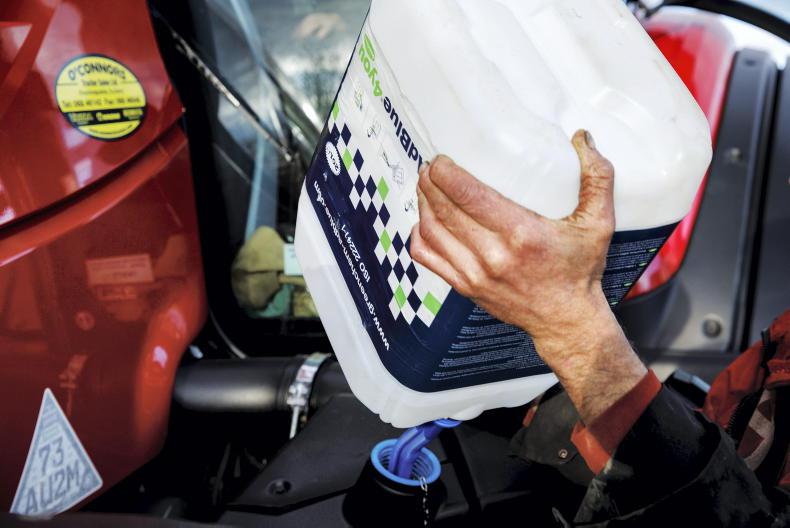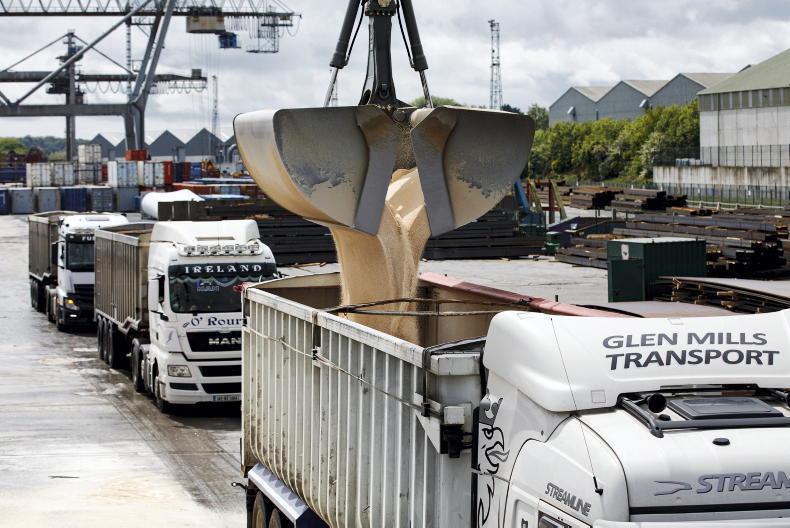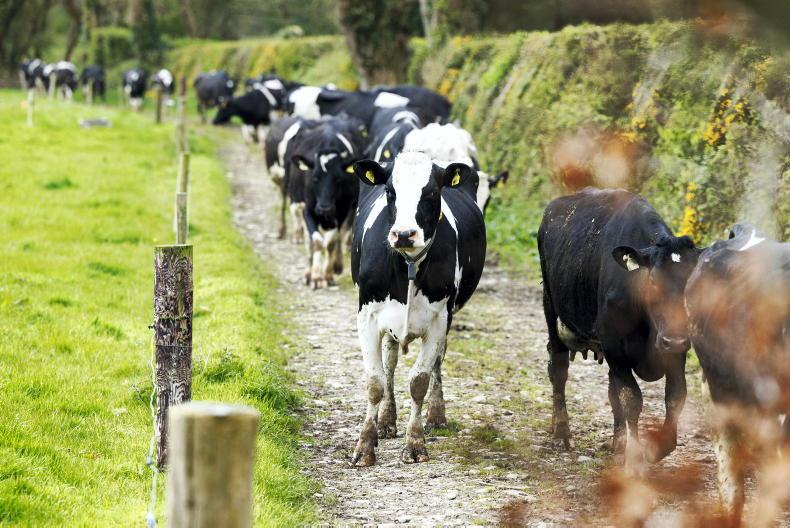AdBlue prices have been on the rise since May, but have begun to really escalate since October. This has resulted in the price doubling over the past 12 months, according to one of Ireland’s largest AdBlue producers and suppliers.
AdBlue, or Diesel Exhaust Fluid (DEF) as it’s otherwise known, is a urea-based solution used in modern diesel engines to help meet emissions regulations. AdBlue isn’t just used in agriculture, it’s now widely used across the automotive industry. Suppliers estimate that Irish AdBlue consumption is in the region of 60-70m litres annually.
With prices currently trading at 35c/l above last year, it represents an additional cost of €24.5m annually to the Irish economy.
Edward Galavan from Euro Blue in Wexford, one of Ireland’s largest AdBlue producers and suppliers, said: “It’s very simple – urea is the main ingredient for producing AdBlue. We use a more purified version than what is used in agricultural fertiliser. As a result, it’s the same issues which are driving both the prices of artificial fertiliser and AdBlue.
China has stopped exporting fertiliser, and Russia has introduced export quotas
“The availability and high cost of gas has temporarily forced 40% of urea production in Europe to come to a halt. China has stopped exporting fertiliser, and Russia has introduced export quotas. This means that eastern buyers such as those from South Korea and Australia have come looking for product from what was typically regarded as the western supply chain.”
He added: “In terms of prices, they have been going up since May, but have really escalated since October.
“This time last year, we were buying urea product at around 300/t, today it’s costing over 1,000/t.
“This time last year, a 1,000l IBC tank of AdBlue would be costing the end user 30-35c/l. Today, it’s costing 60-70c/l.
I think it will be at least next backend before things plateau
“The raw material to produce the product and shipping costs have gone up three-fold so margins are really tight and I can see more of a price hike coming in the new year. And for some suppliers who source product from the European market, it won’t be down to price, it will be a case of availability.
“I think it will be at least next backend before things plateau. AdBlue prices will correlate with artificial fertiliser prices.”
European supply
In the last number of months, a number of Europe’s larger AdBlue manufacturers implemented temporary curtailments or suspensions in production. Slovakia-based Duslo, Europe’s largest AdBlue manufacturer, temporarily ceased production based on high natural gas prices.
Further to this, the Yara Industrial Solutions factory in Italy temporarily reduced production by around 40%. German manufacturer SKW Piesteritz also reduced production.
What is AdBlue and why do we need it?
AdBlue is a 32.5% urea-based solution that uses deionised water as its solvent.
It is neither classified as a fuel or a fuel additive and is only required for use with diesel engines.
It uses a much higher purity of urea than that used in chemical fertilisers. Similarly, deionised water is used as its much more pure than ordinary drinking water.
The solution is injected in small quantities into the engine’s exhaust gas chamber.
The system in which this process is carried out is called selective catalytic reduction
Once combined with the exhaust gases, AdBlue’s purpose is to convert nitrous oxide emissions from diesel engines into nitrogen, water and small amounts of carbon dioxide.
The system in which this process is carried out is called selective catalytic reduction.
This helps engine manufacturers meet stringent emissions regulation standards.










SHARING OPTIONS